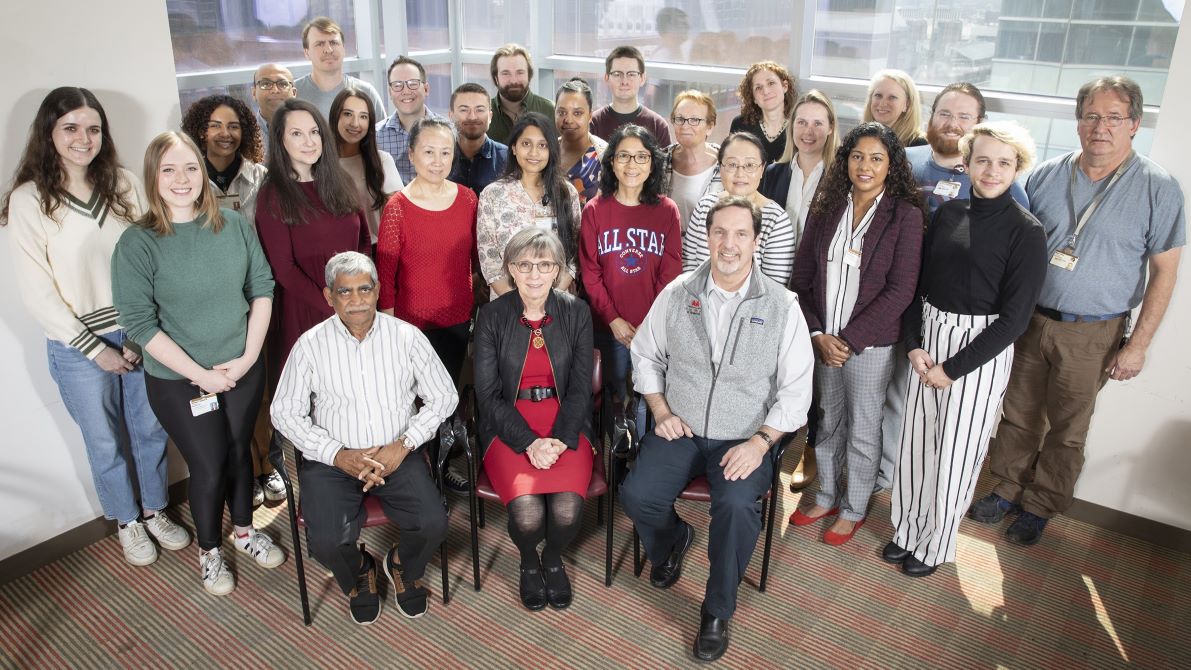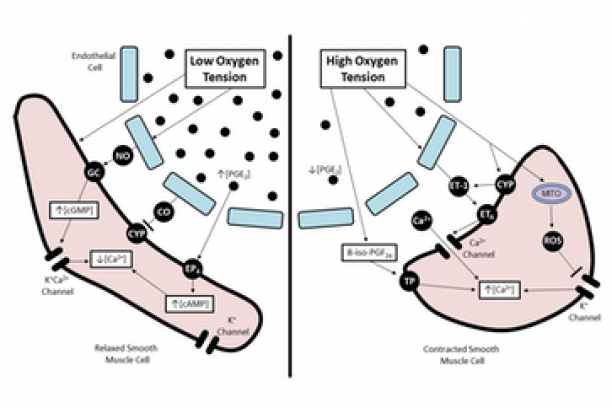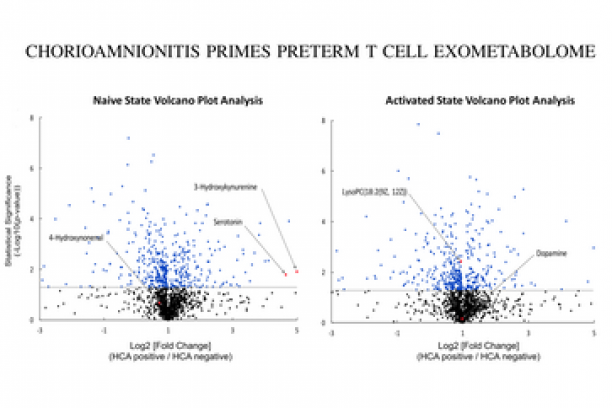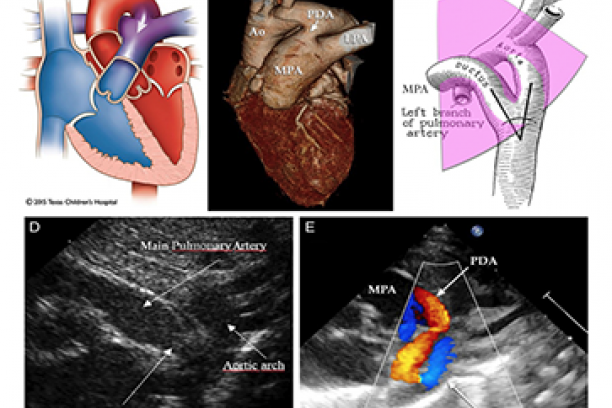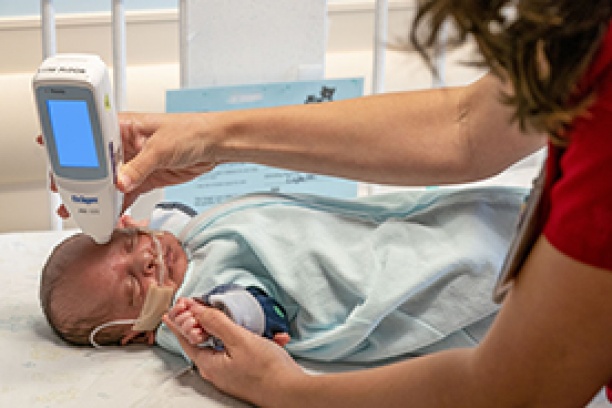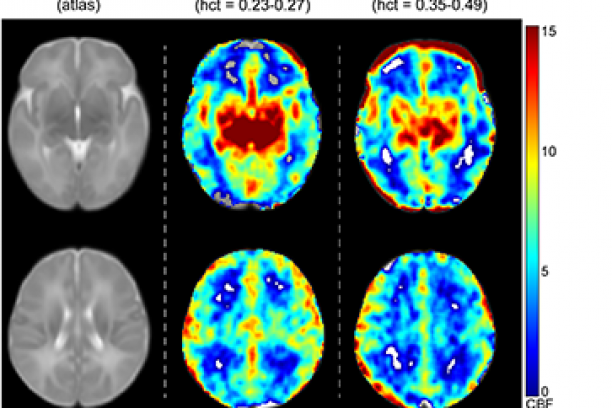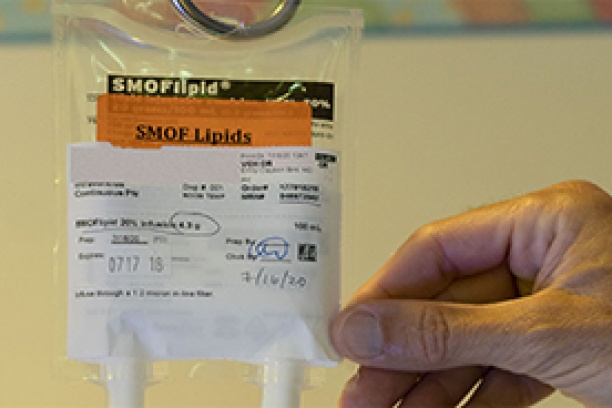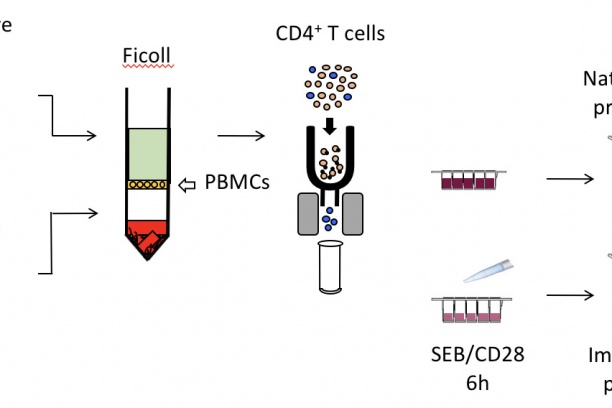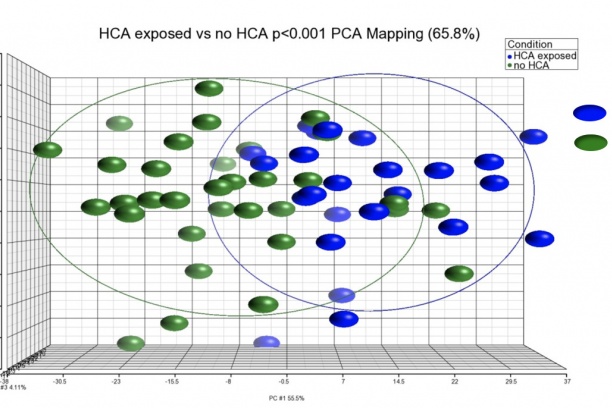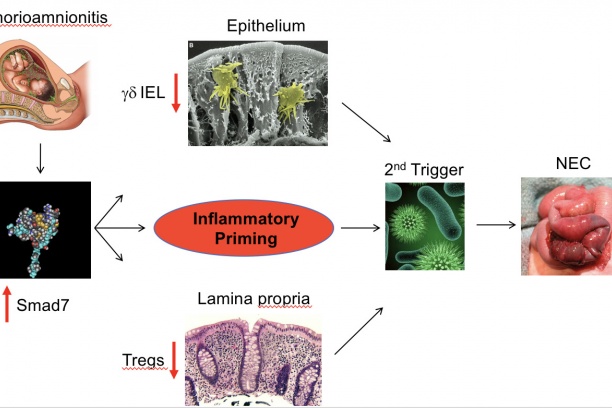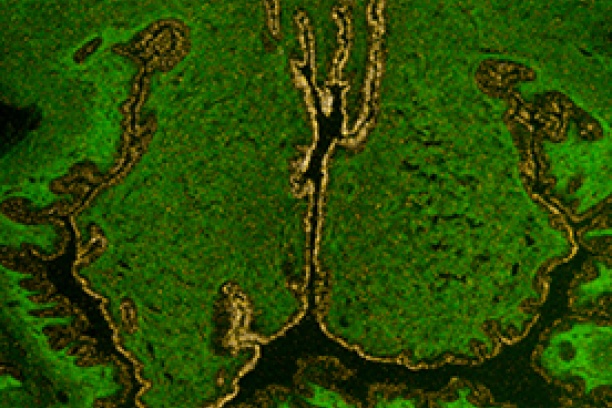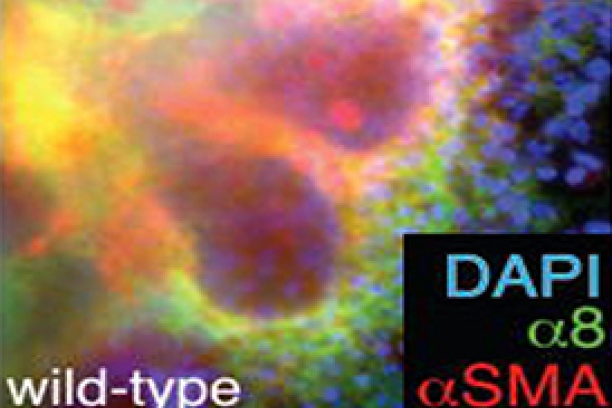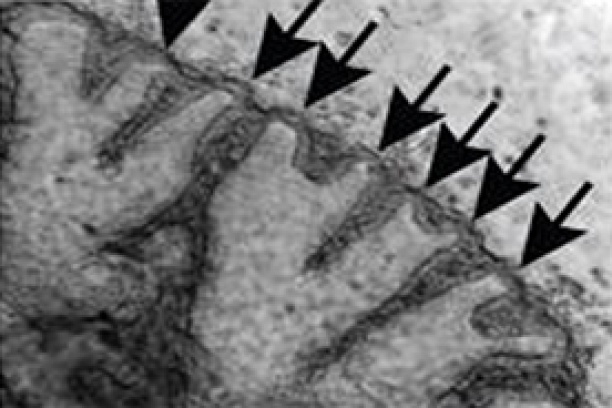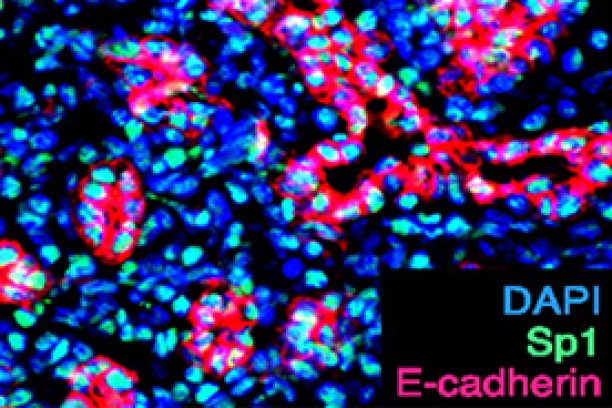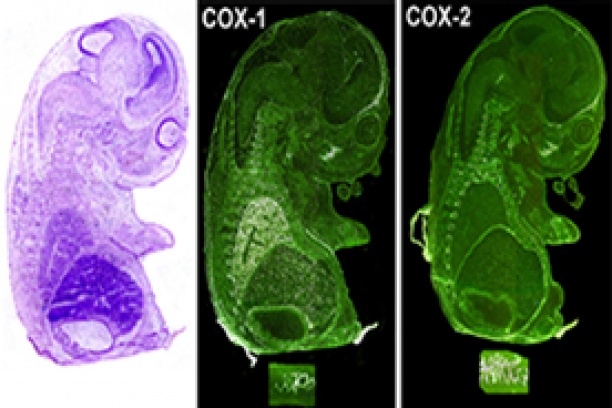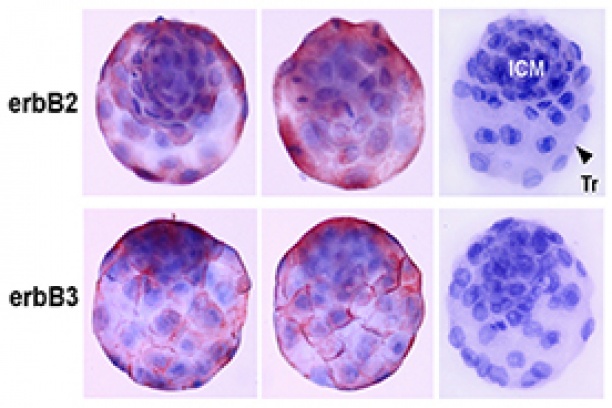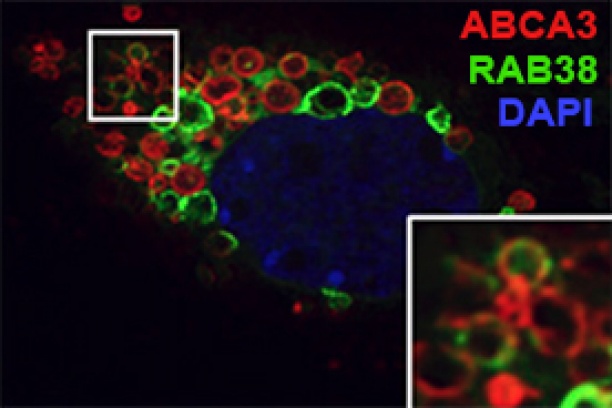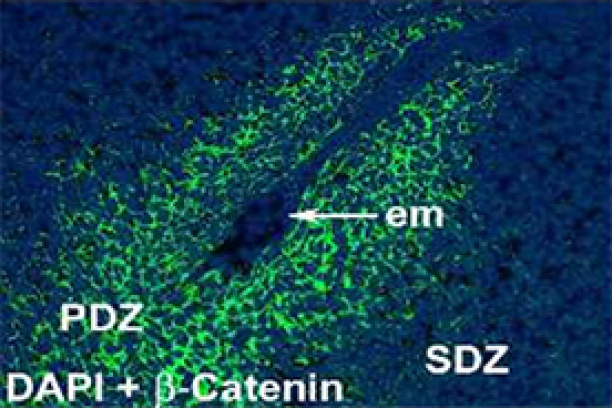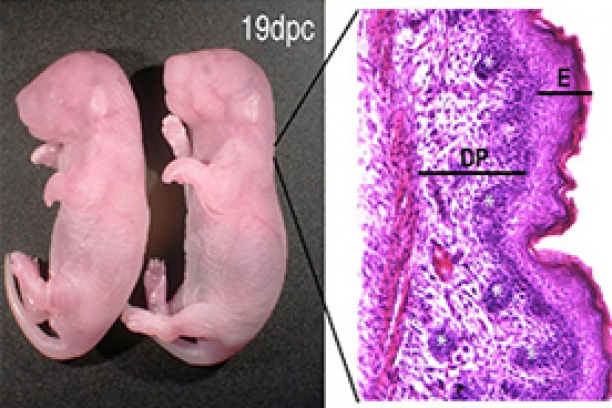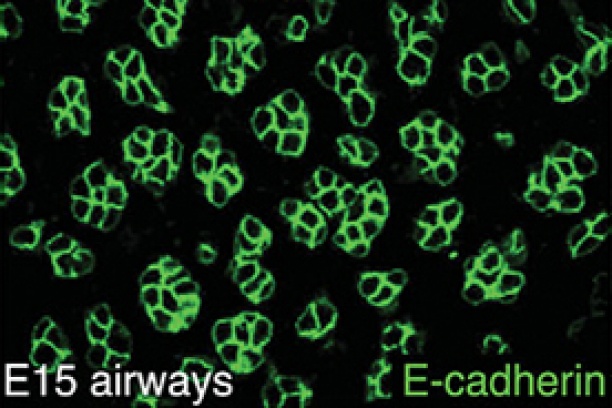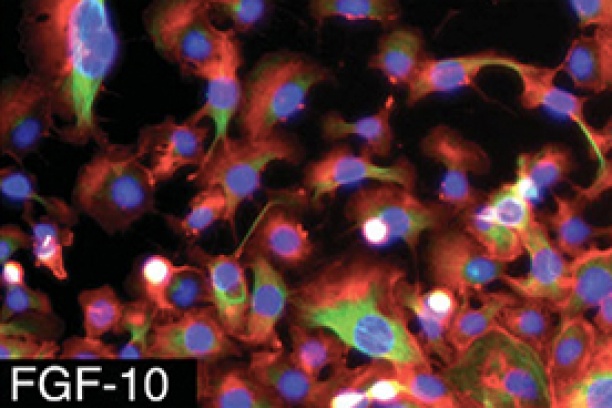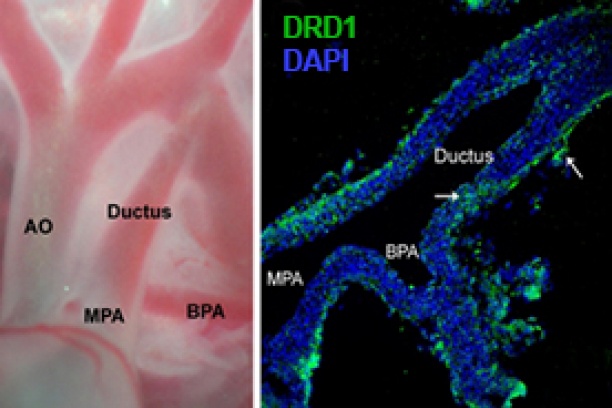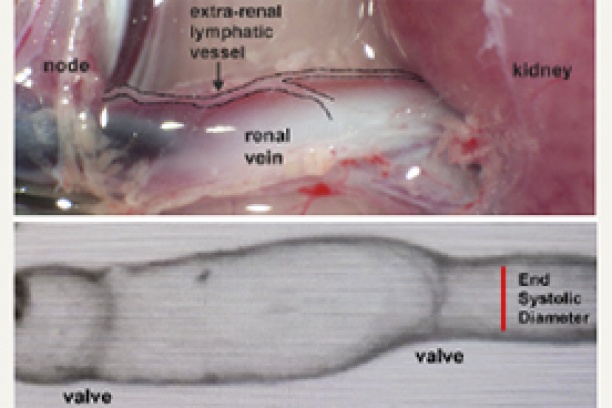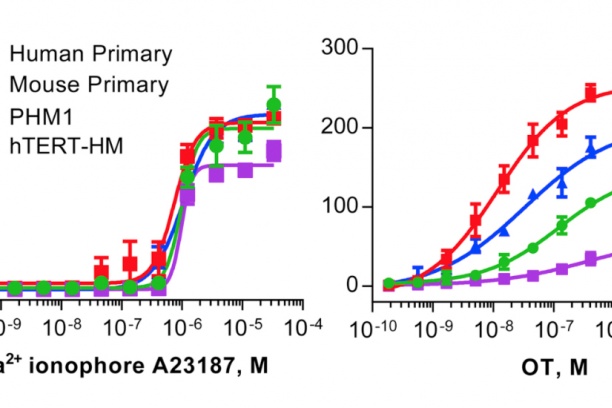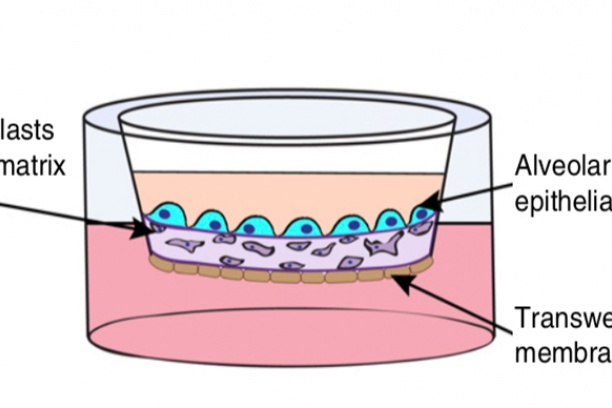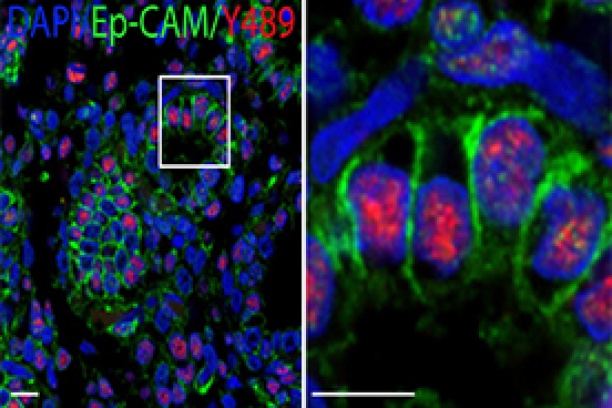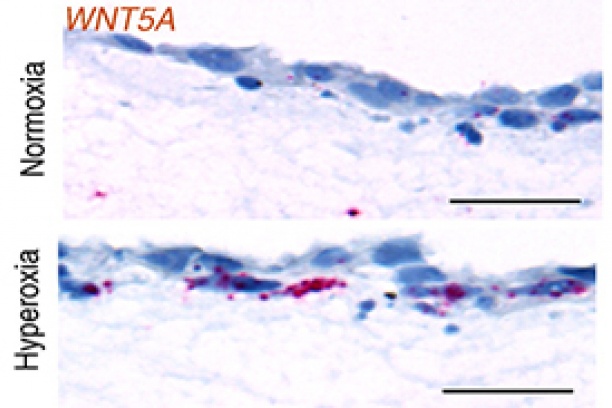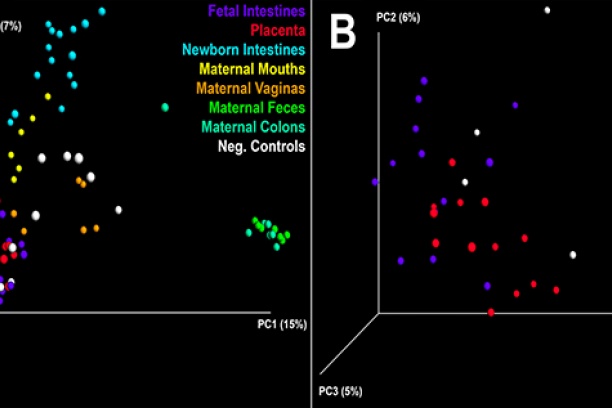The Mildred Stahlman Division of Neonatology is nationally recognized for innovative research and contributions to medical literature. Our faculty members are committed to the discovery of new therapies to treat life-threatening neonatal illnesses and translate them into better ways to deliver care and improve outcomes.
Our laboratory researchers in the division include physicians and scientists who are jointly engaged in studies on reproduction and fetal development, cardiovascular development and microvascular physiology, pulmonary growth and development, gastrointestinal immunology, and stem cell biology. Our state-of-the-art facilities and highly competitive research programs are consistently recognized among the top-ranked programs in NIH-funded research.
The Mildred Stahlman Division of Neonatology also has a long tradition in clinical research that serves the research community across VUMC and Vanderbilt University, and drives advances health care and child health policy across Tennessee and the United States. Collaborations between our clinical researchers and laboratory scientists have resulted in remarkable advances in the health of children. Clinical researchers at Monroe Carell Jr. Children's Hospital at Vanderbilt are committed to identifying new approaches to prevention, diagnosis, and treatment of childhood diseases, and to promoting the health and well-being of children. Clinical research is supported by funding from federal, non-profit, and corporate sponsors as well as by several specialized programs and services established by the Hospital.
Click the PubMed icon below for a list of PubMed publications from our faculty.
Please see below to learn more about our investigators and their research efforts.
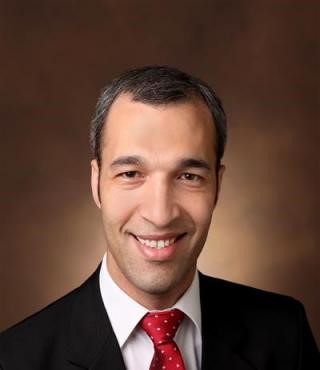
Wael Alrifai, MD
Dr. Alrifai's research focus is in the area of clinical decision support (CDS) for neonatal care. He designed and published clinical trials in the evaluation of clinical information systems in neonatal care and has ongoing trials in the evaluation of CDS tools.
Learn more about Dr. Alrifai’s research.

Uchenna E. Anani, MD
Dr. Anani’s research centers around the integration of bioethics and population health through normative, mixed method, and qualitative research methodologies. Specifically, her areas of focus include parent-provider communication dynamics, bedside counseling and its impact on treatment decision-making, and the utilization of trauma-informed care principles to enhance patient-provider communication, support counseling to patients & families, and re-structure ethics consultation practices.
Learn more about Dr. Anani's research.

Benjamin Crawford, MD
Dr. Crawford’s research focuses on understanding the molecular mechanisms that lead to bronchopulmonary dysplasia (BPD), a major morbidity in preterm infants.
Learn more about Dr. Crawford's research.

Maria Gillam-Krakauer, MD
Dr. Krakauer is the physician leader of the Vanderbilt quality improvement group focused on improving care, survival, and outcomes of infants born at an extremely low gestational age (22-24 weeks' gestation). This is a multidisciplinary group of 50 nurses, respiratory therapists, nurse practitioners, physician assistants, medical receptionists, occupational therapists, physical therapists, child life specialists, and others who are passionate about providing the highest-quality, evidence-based care to our youngest and most vulnerable patients.
Learn more about Dr. Gillam-Krakauer’s research.

Susan H. Guttentag, MD
Dr. Guttentag is Director of the Division of Neonatology. Her research is in the area of lung cell biology, specifically in the production, assembly, and secretion of pulmonary surfactant from the alveolar epithelial type 2 cells. Her work currently involves understanding the cellular trafficking pathways necessary to deliver surfactant-specific components to the surfactant storage organelles known as lamellar bodies.
Learn more about Dr. Guttentag’s research.
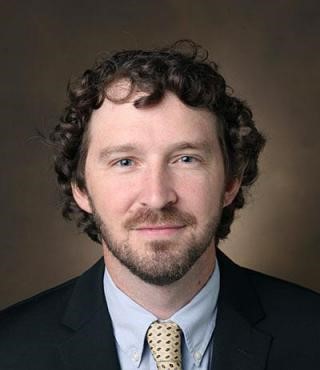
L. Dupree Hatch, III, MD
Dr. Hatch's research focuses on improving the safety, effectiveness, and efficiency of mechanical ventilation (MV) in the Neonatal Intensive Care Unit (NICU). His research uses methods from epidemiology, implementation science, bioinformatics, human factors engineering, and quality improvement. Recent and ongoing work has focused on the safety of endotracheal intubation in newborns, the epidemiology of MV and sedation use in the NICU, developing novel methods to measure and decrease harmful MV in the NICU.
Learn more about Dr. Hatch’s research.

Jennifer L. Herington, PhD
Dr. Herington's research program investigates uterine myometrial and cervical physiology during pregnancy and labor. Her laboratory is focused on the discovery of novel regulators of uterine contractility with therapeutic applications for the prevention of preterm labor, labor induction and control of postpartum hemorrhage. Her research has led to the development of high-throughput assays for screening small-compound libraries, and in vivo tools for pre-clinical testing of promising therapeutic regulators of uterine contractility.
Learn more about Dr. Herington’s research.

Bibhash C. Paria, PhD
Dr. Paria's work focuses on embryonic and uterine signals in mammalian embryo development and implantation. Current projects include the role of histamine in embryo development and implantation, signaling molecules involved in the initiation of progesterone-dependent implantation in hamsters and the mechanisms of protection of the implanting embryo from maternal dangers.
Learn more about Dr. Paria’s research.

Meaghan Ransom, MD, MPH
Dr. Ransom's research program is focused on clinical and translational research to improve outcomes for patients with bronchopulmonary dysplasia (BPD). She is an active member of the BPD Collaborative and is the Associate Director for Translational Research in the BOLD (Biodevelopmental Origins of Lung Disease) Center.
Learn more about Dr. Ransom's research.

J. Jeffrey Reese, MD
Dr. Reese's laboratory is interested in the molecular mechanisms of embryo implantation and other aspects of reproduction. He is particularly focused on the contribution of prostaglandins and other eicosanoids to the reproductive process.
Learn more about Dr. Reese’s research.

Elaine L. Shelton, PhD
Dr. Shelton is interested in understanding blood vessel development and identifying other non-vascular cell types that can be used to form new vasculature or repair injured vessels.
Learn more about Dr. Shelton’s research.

Shajila Siricilla, PhD
Dr. Siricilla's research is focused on identifying novel therapeutic agents to manage infection-induced preterm birth and protecting the fetus against in-utero inflammation. The approaches include a large-scale screening of a customized library of molecules targeting the druggable transcriptome associated with infection-induced inflammation leading to preterm birth.
Learn more about Dr. Siricilla's research.
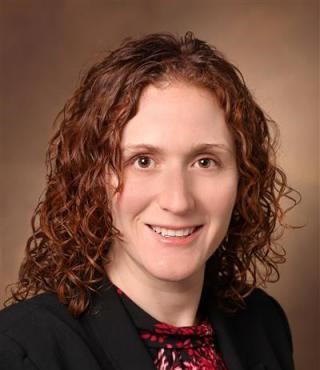
Jennifer Sucre, MD
Dr. Sucre's research program focuses on understanding the molecular mechanisms of normal lung development and lung disease across the lifespan with a particular focus on bronchopulmonary dysplasia, the leading complication in survivors of preterm birth.
Learn more about Dr. Sucre’s research.

William F. Walsh, MD
Dr. Walsh's clinical research focuses on determining the optimal ways to care for critically ill infants. Recent projects include a randomized trial of nitric oxide for prevention of chronic lung disease in premature infants and a randomized trial of fetal surgery vs. post-natal repair of myelomeningocele. He is presently looking at the effects of state-wide screening for critical congenital heart disease on outcomes. He is also studying the use of erythropoietin to ameliorate injury from hypoxic ischemic encephalopathy and working with colleagues in nursing to research pregnancy outcomes in Tennessee and the effect of targeted interventions.
Learn more about Dr. Walsh’s research.

Joern-Hendrik Weitkamp, MD
The focus of Dr. Weitkamp's research and scholarly work has been in neonatal immunology, neonatal infectious disease and necrotizing enterocolitis. He is specifically interested in the prenatal influences on the developing immune system.
